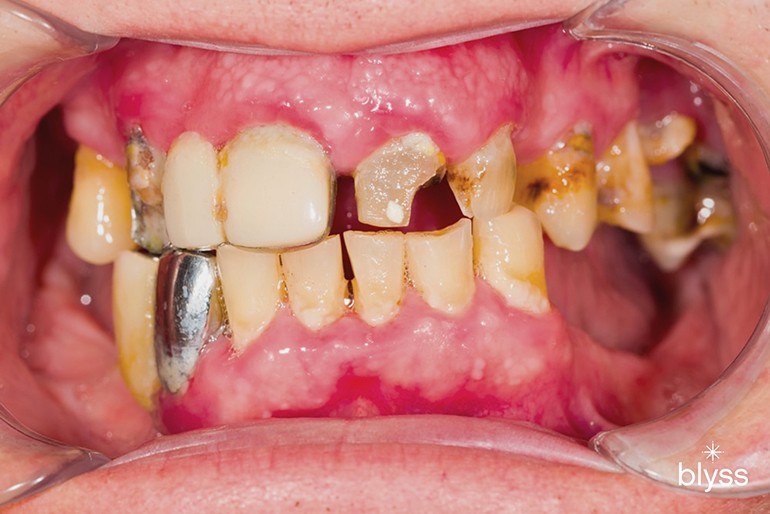 Understanding common dental problems—and how to avoid them—helps you maintain a healthy, confident smile for life.
Understanding common dental problems—and how to avoid them—helps you maintain a healthy, confident smile for life.
Tooth Decay (Cavities)
What it is: A breakdown of tooth enamel from acids produced by bacteria that feast on sugars in your mouth.
Symptoms: Sensitivity to sweet, hot, or cold foods; visible dark spots; persistent bad breath .
Prevention:
- Brush twice daily with fluoride toothpaste.
- Floss daily to remove hidden plaque.
- Reduce sugary or starchy snacks.
- Regular dental check-ups for early detection
Gum Disease (Gingivitis and Periodontitis)
What it is: Inflammation (gingivitis) that can progress to gum and bone damage (periodontitis) due to plaque build-up .
Symptoms: Red, swollen, or bleeding gums; bad breath; receding gums; loose teeth .
Prevention:
- Brush twice daily and floss once daily.
- Use mouthwash if recommended.
- Visit your dentist every six months for cleaning.
- Stop smoking, manage diabetes, and eat a balanced diet
Bad Breath (Halitosis)
What it is: Often caused by bacteria in your mouth, gum disease, cavities, oral infections, dry mouth, or other health issues .
Symptoms: Persistent unpleasant odor not fixed by mint or mouthwash .
Prevention:
- Maintain good oral hygiene: brush, floss, clean tongue.
- Treat gum disease and cavities.
- Stay hydrated and use sugar-free gum.
- Visit your dentist for evaluation
Tooth Sensitivity
What it is: Pain when eating/drinking hot, cold, sweet, or acidic items due to enamel wear or exposed dentin .
Causes: Decay, abrasion, erosion, gum recession.
Prevention:
- Use soft-bristle brush and gentle technique.
- Opt for fluoride toothpaste for sensitive teeth.
- Cut down acidic foods and drinks.
- Consult your dentist; they may apply desensitizing agents or sealants .
Enamel Erosion
What it is: Loss of tooth enamel due to acid exposure from diet or stomach acid .
Symptoms: Smooth, glossy tooth surface, yellowish tint, increased sensitivity.
Prevention:
- Limit acidic foods and drinks.
- Rinse with water after acidic meals.
- Wait 30 minutes to brush after acid exposure.
- Use fluoride toothpaste or mouthwash
Teeth Grinding (Bruxism)
What it is: Involuntary clenching or grinding of teeth, often during sleep .
Symptoms: Worn or fractured teeth, jaw pain, headaches .
Prevention:
- Use a custom night guard.
- Reduce stress through relaxation techniques.
- Treat sleep disorders if present
Chipped, Cracked, or Broken Teeth
What it is: Dental damage from biting hard foods, accidents, or weakened restorations .
Prevention:
- Avoid biting on hard objects (ice, pens).
- Wear mouthguards during sports.
- Seek prompt dental care for cracks or chip repair
Dental Abscess
What it is: Pus-filled infection from untreated decay or gum disease, often very painful .
Symptoms: Severe toothache, swelling, sometimes fever .
Prevention:
- Address cavities early.
- Treat gum disease promptly.
- Practice good oral hygiene.
- Visit dentist quickly if pain or swelling occurs
Dry Mouth (Xerostomia)
What it is: Reduced saliva flow, which can increase decay and discomfort .
Symptoms: Sticky mouth, dry throat, cracked lips, bad breath.
Prevention/Management:
- Drink water frequently.
- Chew sugar-free gum.
- Use saliva substitutes.
- Review medications with your physician or dentist
Oral Cancer and Mouth Sores
What it is: Persistent sores, red or white patches, or tumors in the mouth that may indicate cancer or other serious conditions .
Prevention:
- Avoid tobacco, limit alcohol.
- HPV vaccination if applicable.
- Self-check regularly for unusual spots.
- Have oral cancer screenings at dental visits.
Misaligned (Crooked) Teeth & Bite Problems
What it is: Improper alignment of teeth or jaws (malocclusion), affecting function and hygiene.
Prevention/Treatment:
- Early orthodontics for children.
- Use retainers post‑treatment.
- Clean hard-to-reach spots carefully.
- Orthognathic surgery in severe cases.
Lost or Failed Restorations (Fillings, Crowns, Implants)
What it is: Fillings or crowns that fracture, loosen, or fail; implants can fail due to infection or poor care.
Prevention:
- Avoid hard/ sticky foods.
- Maintain excellent oral hygiene around restorations.
- Attend regular check-ups.
- For implants, keep gums and bone healthy and see your dentist regularly.
Daily Habits That Harm Your Teeth
- Brushing too hard, using a hard-bristle brush, or brushing immediately after acidic meals can wear enamel and injure gums .
- Chewing ice, pens, or using teeth as tools can cause cracks and chips.
- Frequent snacking on sugary or acidic foods feeds bacteria and weakens enamel.
Healthy habits to follow:
- Use a soft-bristled brush, gentle circular strokes, and brush twice daily for 2 minutes.
- Floss daily and consider mouthwash.
- Limit sugar, acidic foods, tobacco, and alcohol.
- Protect your teeth with mouthguards in sports and night guards if grinding.
Prevention Is Protection
Preventive dentistry is powerful. According to CDC and WHO, steps like fluoride use, routine brushing/flossing, sealants, and healthy diets dramatically reduce risk for most dental diseases.
Why Choose Oral Medics Dental Clinic?
At Oral Medics Dental Clinic & Implant Centre in Chandkheda, Ahmedabad, our mission is to empower you with the knowledge and care needed to prevent dental issues before they begin. We offer:
- Thorough oral exams and professional cleanings.
- Personalized preventive plans.
- Advanced treatments (sealants, fluoride therapy, custom guards).
- Compassionate care from a skilled team.

